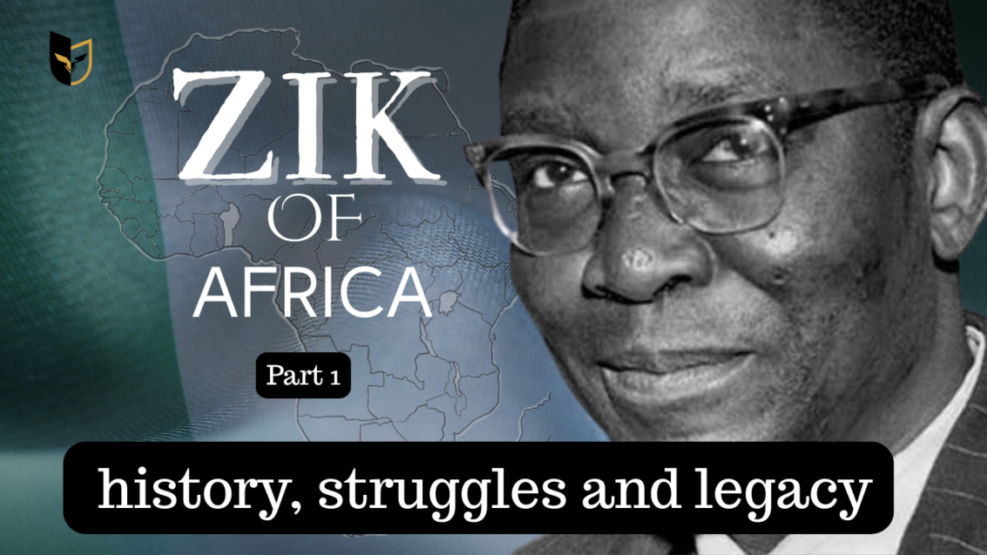No products in the cart.


It was another round of speeches at the United Nations General Assembly (UNGA) where the presidents or leaders of countries congregate to speak and make connections on shared interests and partnerships. The United Nations Charter is based on ‘the principle of the sovereign equality of all its Members, shared mandate to save succeeding generations from the scourge of war, maintain international peace and security among other declarations.’
UNGA holds the position as the chief ‘deliberative, policymaking and representative organ of the United Nations’ which makes recommendations to States on international issues.’ It provides ‘a unique forum for multilateral discussions on intertwined global challenges to advance peace, security, and sustainable development.’ Every year, member nations meet to solve the world’s social and diplomatic problems. UNGA meetings give leaders a global platform to articulate issues facing their country, their region and across the world. During the annual high-level General Debate, each member state is allotted time to speak on the year’s theme.
The 2023 theme is, “Rebuilding trust and reigniting global solidarity: Accelerating action on the 2030 Agenda and its Sustainable Development Goals towards peace, prosperity, progress and sustainability for all” This year’s gathering was principally to “review the implementation of the 2030 Agenda and its 17 Sustainable Development Goals (SDGs) and provide high-level political guidance on transformative and accelerated actions leading up to the target year of 2030 for achieving the Goals.”
After World War II, the UN was initiated by the United States of America, Great Britain, and the Soviet Union, which sought to avoid future conflicts and to maintain international peace and security. “But the politics of the Assembly have long been dictated by tensions between the wealthy nations of the “global north” — broadly considered to include Australia, Europe, North America, Israel, Japan, South Korea and New Zealand — and the “global south,” largely represented by former colonies of the global north across Africa, Asia and Oceania, Latin America and the Caribbean.” Nikita Richardson wrote in The New York Times.
Making a case for Africa’s position and the need to end the exploitative relationship that Africa bear for the advancement of the world, Cyril Ramaphosa, the South Africa’s president said, “Centuries after the end of the slave trade, decades after the end of the colonial exploitation of Africa’s resources, the people of our continent are once again bearing the cost of the industrialisation and development of the wealthy nations of the world. This is a price that the people of Africa are no longer prepared to pay.”
Read Also: Niger: A test of Africa’s resolve
President Ramaphosa indeed succinctly replayed the general feeling across Africa which is ravaged by poverty and lack of infrastructure and disenchantment towards the continued dehumanisation of the peoples of Africa in the exploitation of her natural resources which largely have not, in a greater sense, benefited the African people.
Nigeria’s President Bola Tinubu said in his speech, “In fundamental ways, nature has been kind to Africa, giving abundant land, resources and creative and industrious people. Yet, man has too often been unkind to his fellow man and this sad tendency has brought sustained hardship to Africa’s doorstep.”
Africa is greatly blessed but for internal and external factors and interests towards control of Africa’s resources, Africa’s economic growth, industrial expansion, wealth creation and distribution and job creation are impeded and not sustainable.
Will the people of Africa be able to stop bearing the cost of the industrialisation and development of the wealthy nations of the world?
As I wrote previously in ‘Africa’s hollow independence‘, “In recent years, there have been trappings of a second scramble for Africa. The Western-European countries and Asian countries are looking towards Africa, struggling to be the dominant power in control of African nations. It begins from Africa’s relations with these individual countries; like, Russia-Africa, China-Africa, US-Africa among others.”
But African leaders should be careful in the partnerships they negotiate for. No African was present at the Berlin Conference where Africa was divided among the colonising nations whose plundering of Africa is yet to be erased in the conduct and partnerships they seek to retain in Africa. A renewed partnership of equal interests should be sought for.
Noting the tendency of a second scramble of Africa, President Tinubu said, “As for Africa, we seek to be neither appendage nor patron. We do not wish to replace old shackles with new ones.”
Beyond slavery, colonialism, Africa’s rise is imminent but that is dependent on the strength and determination of the peoples to first of all, rid Africa of their weak and subservient leaders and replace them with leaders who would rather be able to stand up for the peoples and against the continued exploitation of Africa’s human and natural resources.
Going by the tenets of the principle of the sovereign equality of all Members of the UN, Africa has received the treatment, not of equality but of a subservient member whose membership in the Security Council cannot be as a permanent member – three countries; Gabon, Ghana and Mozambique are currently non-permanent members elected for two-year terms. And by this, the UN undermines the principle of its membership.
“Despite its history, despite the legacy of exploitation and subjugation, despite the ongoing challenge of conflict and instability, Africa is determined to regain its position as a site of human progress.” Cyril Ramaphosa declared.
Africa will indeed become, not by replacing the shackles.